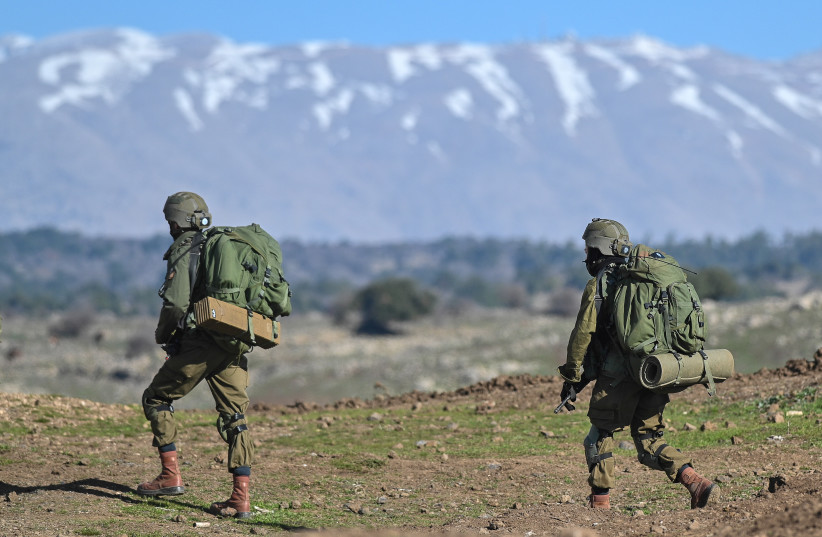The IDF and the Defense Ministry have increased the quota for recruitment deferrals by 10% following a peak in demand by youth to spend a year doing national service or premilitary preparatory courses.
At the initiative of Deputy Defense Minister Alon Schuster, the IDF and the Defense Ministry, Defense Minister Benny Gantz on Monday approved the increase in quotas that doubles the number of youth spending a year of national service before being drafted into the military.
The move comes after the IDF and the Defense Ministry’s Social Security Division reported a record number of 12th-grade graduates volunteering for national service and premilitary preparatory courses (mechina).
Following the move, an estimated 7,660 Israeli youths will be able to postpone their enlistment in the coming year, the Defense Ministry said.
Schuster thanked MKs for approving a budget that made such a move possible and said the decision would allow for “a gradual expansion of the framework of premilitary programs, which are important Israeli and Zionist projects.”
“I am proud of these young men and women who choose to improve their personal skills and commitment to the country before they are drafted,” he said.

Israel has about 30 agencies where youth can volunteer for their national service and 58 premilitary programs throughout the country from the Golan Heights to the Arava. Additional programs and agencies are set to be approved in the coming year.
The premilitary programs target post-high-school students from all backgrounds, olim (new immigrants) and Jews from abroad who have not yet made aliyah. During the one-year program, students defer being drafted and then complete their regular army service.
Non-Israeli participants in the pre-military programs are not obligated to join the IDF. The programs generally encourage participants to join combat units.
OC IDF Manpower Directorate Maj.-Gen. Yaniv Asur said he expects to see many of those who defer their service to study in premilitary courses serve in combat and command positions after they are drafted.
“We see this year as an investment in human capital, and after recognizing its importance, we have decided to increase the quotas by 10%,” Asur said, adding that those who take part in these programs “go through a very significant transformation process of maturity and study.”
In December, Gantz and Prime Minister Naftali Bennett agreed to establish an interministerial team to “evaluate service arrangements” in the IDF and civil service and form “a new, broad and updated service plan that coordinates security and socioeconomic needs in Israel, including its various population groups, and which reflects a broad national consensus,” the Prime Minister’s Office said at the time.
Gantz has been trying to reform conscription to the army, saying it is necessary to preserve the IDF as a “people’s army” in which every citizen, regardless of background, serves the country. If not, the country would be forced to end the drafting of citizens, turning the IDF into a professional, albeit volunteer, army.
The universal national service model would replace the current system that exempts Arab-Israelis and haredim (ultra-Orthodox) from serving in the military or civil service after finishing high school. The military would get the first choice of recruits, followed by other security and civil service roles, such as serving in the police or in hospitals.
